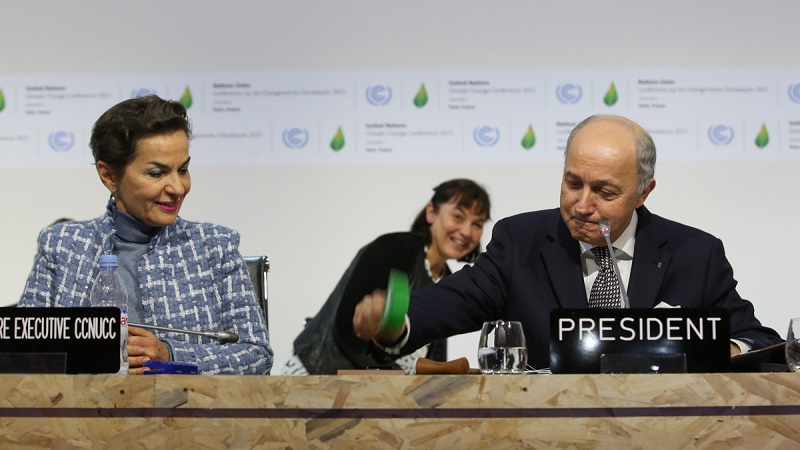France has nearly done it. The EU has taken a first step. Nigeria is on track for September and India is signalling urgency.
I’m talking about ratifying (or whichever term your government prefers for rubber stamping) the Paris climate agreement.
Why does it matter? Well, as soon as a critical mass of countries completes the formalities, the pact comes into force.
The US is particularly keen to seal the deal this year and cement President Barack Obama’s legacy. G7 allies are also promoting early approval.
Quote of the week
“It happens I chose climate as the battleground to work – but there are many other issues” – outgoing UN climate chief Christiana Figueres speaks to Ed King about optimism, women’s rights and Donald Trump
Embarrassingly for a bloc that prides itself on ambition, the EU looks like a laggard on this, with complex internal negotiations to navigate.
Campaigners welcomed the European Commission getting the ball rolling on Friday, but some member states are in no hurry.
If it is not Brussels that gets the pact across the finish line, it could be Delhi. But India has its own internal debates to contend with.
Climate change was top of the agenda for prime minister Narendra Modi’s visit to the US this week. Washington saw it as a boost for implementing the Agreement – read Jake Schmidt of NRDC’s take.
Chart of the week
Arctic sea ice is shrinking more than ever (Pic: NSIDC)
India is more ambivalent, reported Nitin Sethi at the Business Standard, noting that the rulebook for Paris is still under negotiation.
He quoted an unnamed negotiator: “Do we want to sign an agreement we don’t know the full contours of? Do we want to be stuck in a situation where allied developing countries are not sitting on the table to negotiate these rules? These are questions we must address before we decide to ratify the agreement.”
Around the world
Iceland: Groundbreaking project turns CO2 into stone
EU: Energy chiefs favour fossil fuel lobby, says report
Norway: Lawmakers target climate neutrality by 2030
EU: Ten countries ink offshore wind agreement

